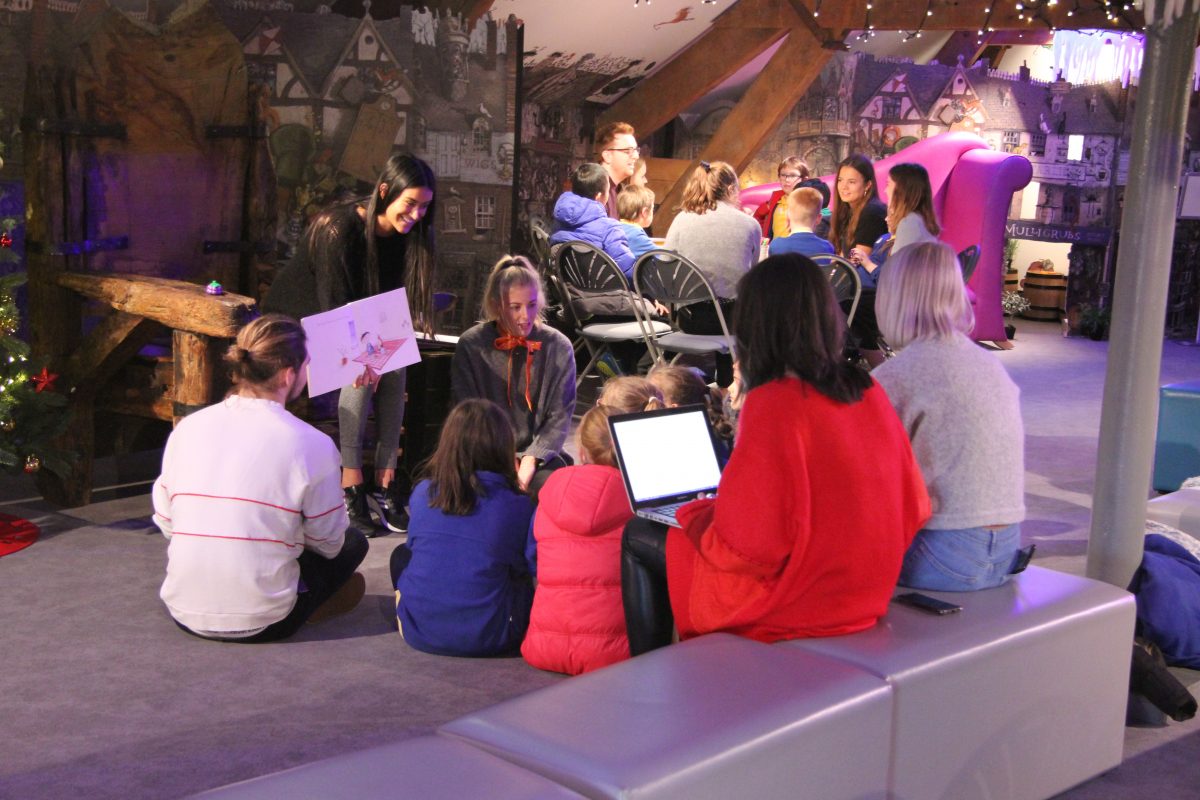This academic year, a new teaching and learning collaboration between Newcastle University’s School of Geography, Politics and Sociology and Seven Stories: The National Centre for Children’s Books brought university students and local primary school children together to explore ideas around gender through an intergenerational practice workshop. In this blog post, I explain how the project came about, what happened, and what we’re doing next…
Seven Stories believes that the books children read help them to better understand themselves and the world around them, and they are passionate about championing inclusive children’s literature.
Dr Michael Richardson, leader of the Geography BA’s third year module Geographies of Gender and Generation, approached Seven Stories last summer about a new teaching collaboration focussing on challenging gender stereotypes. As part of this module, students are asked to develop a campaign or activity which promotes gender equality, and then reflect on this through a written assignment. In the 2017 / 18 academic year, Dr Richardson wanted to provide a focus for his students that would allow them to “explore intergenerational practice as an intervention method for the promotion of gender equality”. Having previously worked with Seven Stories on their 2015 Big Ideas project, Dr Richardson saw Seven Stories as a potential collaborator.
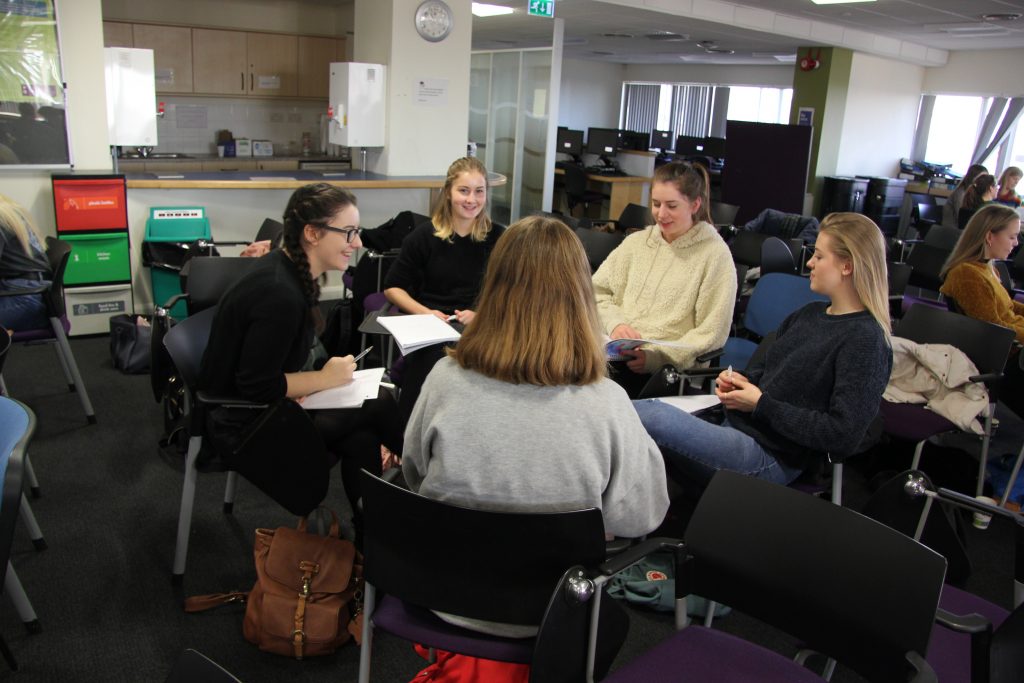
After receiving support through the School of Geography, Politics and Sociology’s Learning, Teaching and Student Experience fund to kickstart the project, we developed resources and a programme of student workshops, leading to a final event with children and young people at Seven Stories.
In the first workshop, Jayne Humphreys (Learning and Participation Co-ordinator at Seven Stories) and I introduced the students to issues around gender representation in children’s literature. We also introduced the five books that the students would be focussing on in the final schools event:
- Dogs Don’t Do Ballet, by Anna Kemp and Sara Ogilvie (Simon and Schuster, 2010)
- Tough Guys (Have Feelings Too), by Keith Negley (Flying Eye Books, 2015)
- Fantastically Great Women Who Changed the World, by Kate Pankhurst (Bloomsbury, 2016)
- Izzy Gizmo, by Pip Jones and Sara Ogilvie (Simon and Schuster, 2017)
- Introducing Teddy, by Jessica Walton (Bloomsbury, 2016)
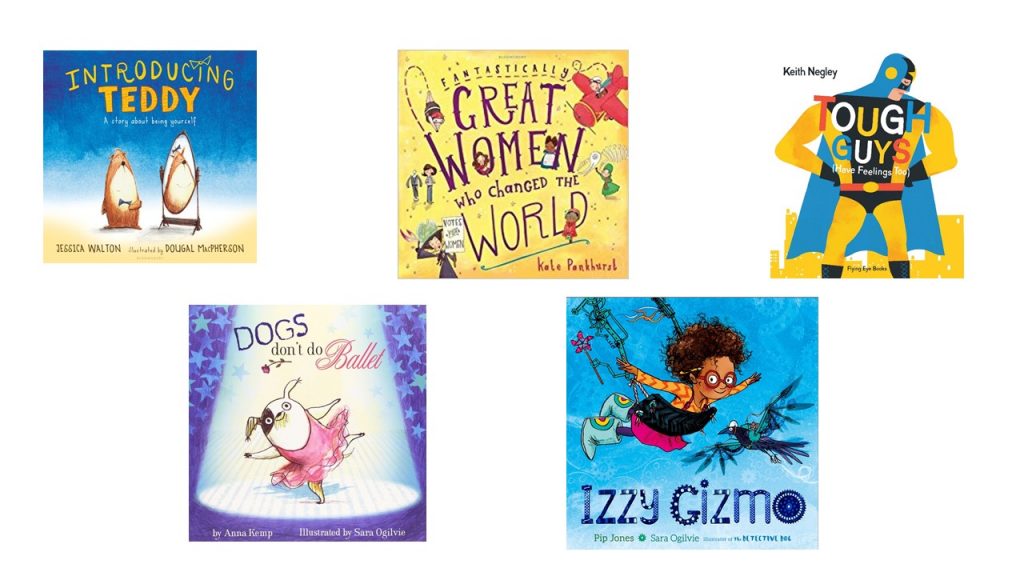
Next, the students were asked to pitch which book theywould like to work with. The students said:
“[Izzy Gizmo] promotes the idea of science and technology as a viable career choice for young girls rather than the typical caring roles that are often shown in children’s books. I also like… that the main character is of an ethnic minority”
“I think [Tough Guys (Have Feelings Too)] is… about allowing people of all genders to be more well-rounded human beings. Encouraging emotional literacy in boys in particular is a really simple and effective way to tackle a number of serious issues… This benefits everyone, including women”
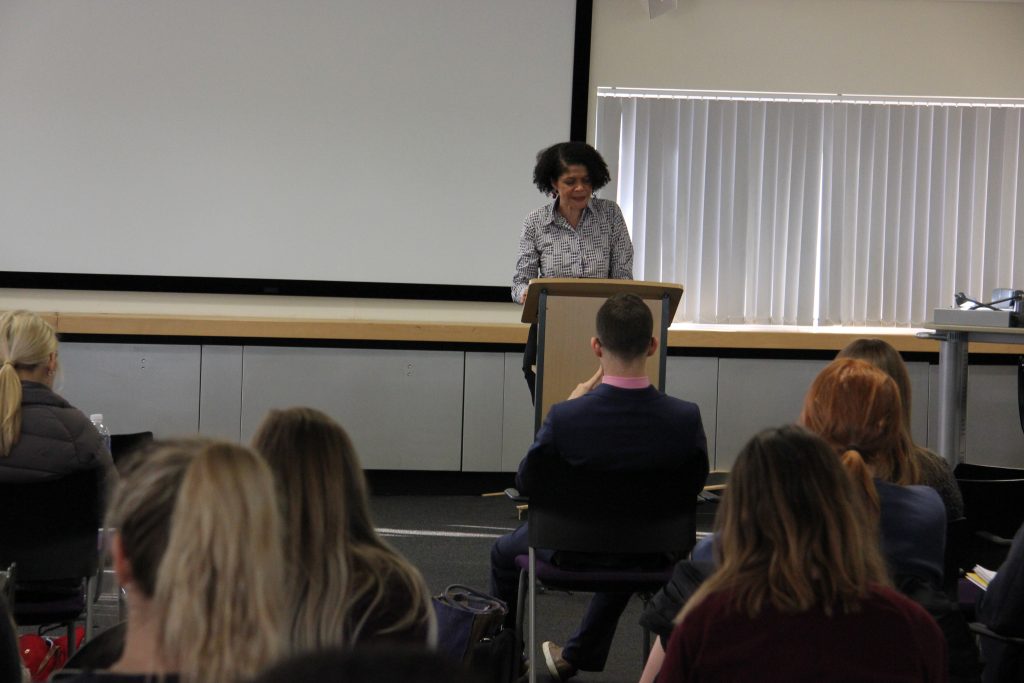
Having chosen their books, the second student workshop focussed on storytelling and engagement techniques. Jayne led the students through Seven Stories’ approach to story times and how to use stories as a starting point for other conversations and activities. MP for Newcastle Central Chi Onwurah also attended this session, speaking to the students about the gendered workplace.
In November 2017, the students welcomed a class of Year 5 children from nearby Hotspur Primary School to Seven Stories. Working in groups, the students presented a 30-minute session with a small group of children, where they read their story together, discussed the questions about gender that the books raised, and took part in activities such as games, dressing up and drawing.
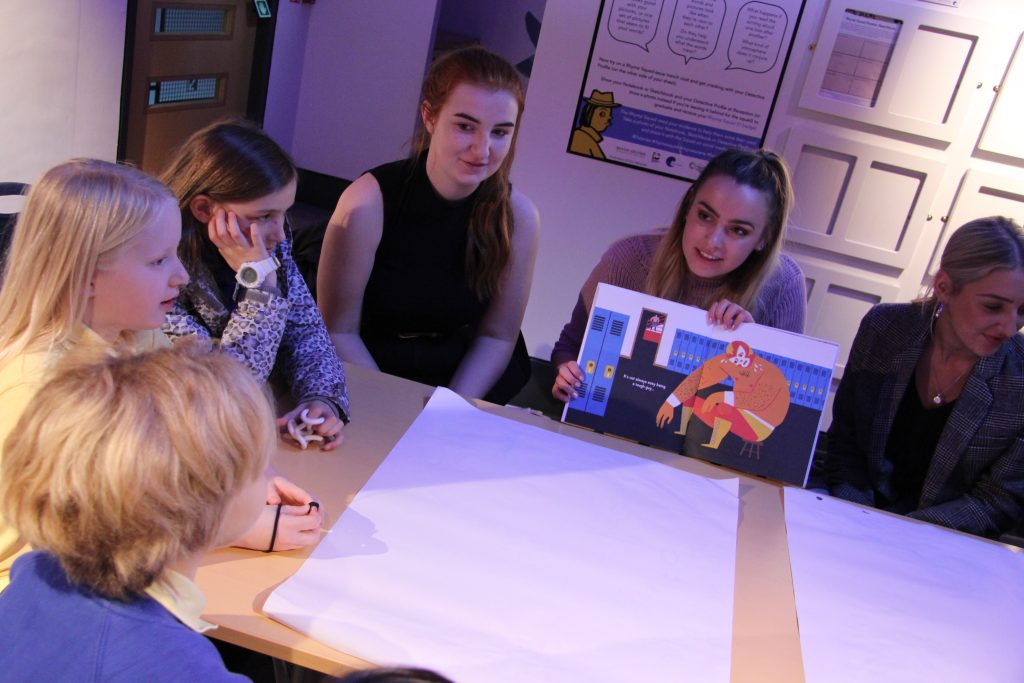
The students said:
“I thought it was a really creative way to put something we’ve learnt in lectures into a real-life situation.”
“I think the event at Seven Stories was really beneficial for us, as well as the children. Storytelling is definitely a good way of getting some big ideas out to them… I’m going to use this event as experience towards my future teaching career too.”
Teaching staff at Hotspur Primary School said, “We all had such a wonderful time at Seven Stories – what a great workshop!”
For Dr Michael Richardson, “This collaboration with Seven Stories has enabled me to enhance my teaching practice and improve the student experience. My module promotes intergenerational practice, or in other words, methods of bringing groups of people of different ages together. Of particular note was the impact of the local primary school children on my final year undergraduate students. This highlighted just how much children have to teach us as older people and reinforced just how much intergenerational work is a two-way learning process.”
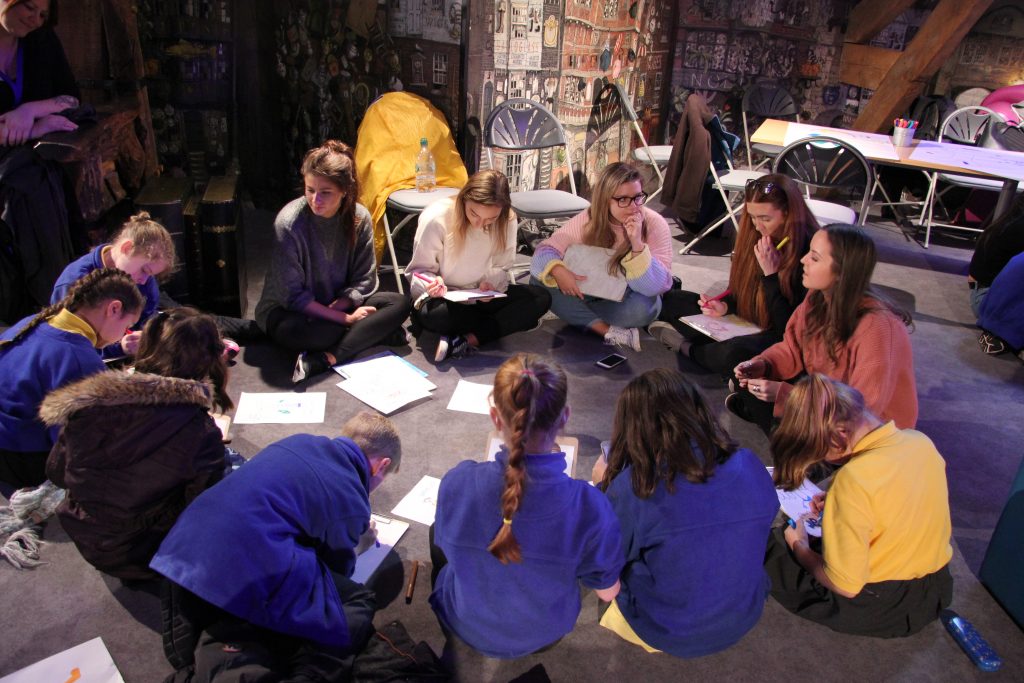
And Jayne Humphreys said: “For Seven Stories, this has been a wonderful opportunity to engage the children of Hotspur Primary and to work collaboratively with the University students. Using children’s literature to challenge, inspire and empower children and young people is at the heart of the work we do at Seven Stories and it was a pleasure to be part of a project which brought intergenerational groups together and engage children in our local community to think about these big issues.”
What’s next? The students have submitted their assignments reflecting on the workshop, and these are being assessed; I’ll also be interested to hear their reflections on this in their module evaluation questionnaires. Following that, we’ll be evaluating the project and thinking about plans for next year. So, watch this space!
Thanks to the GEO3135 students, Dr Michael Richardson, Jayne Humphreys and Hotspur Primary School for their contributions to this blog post.


